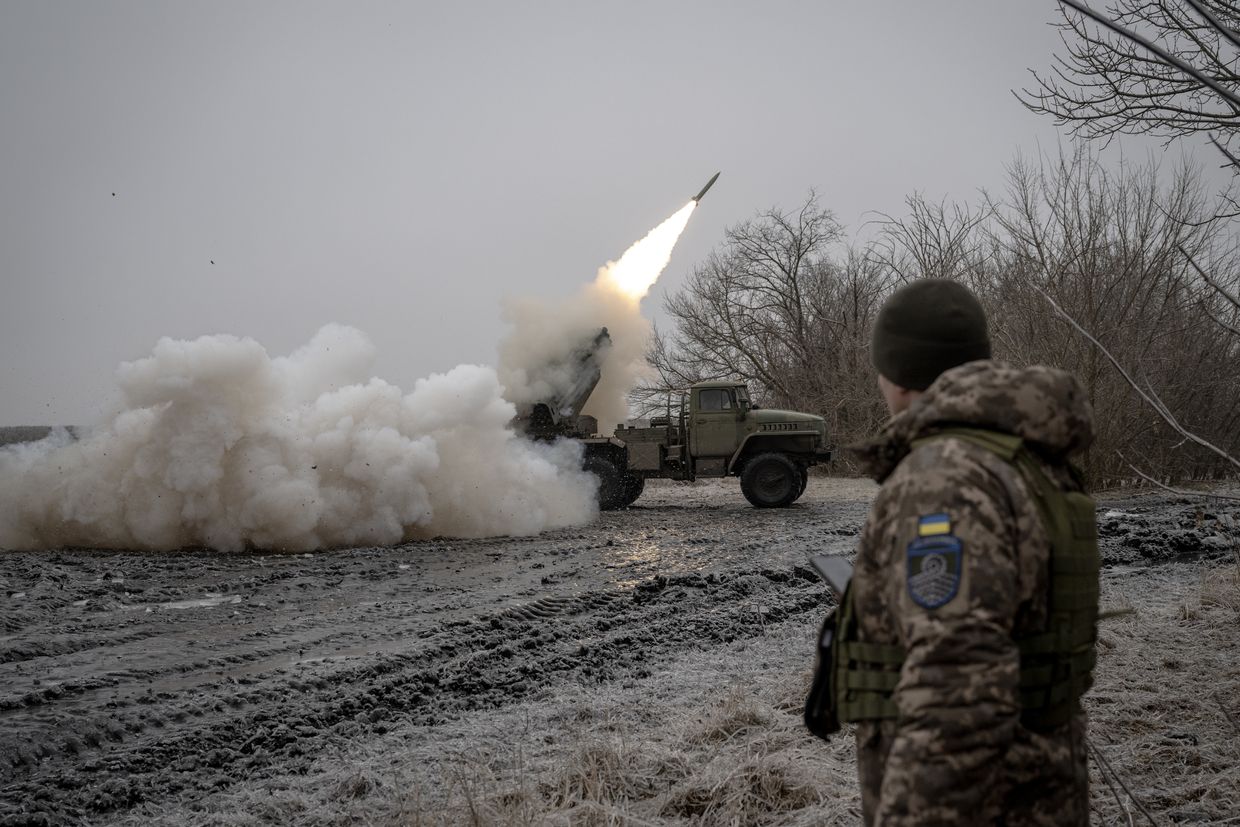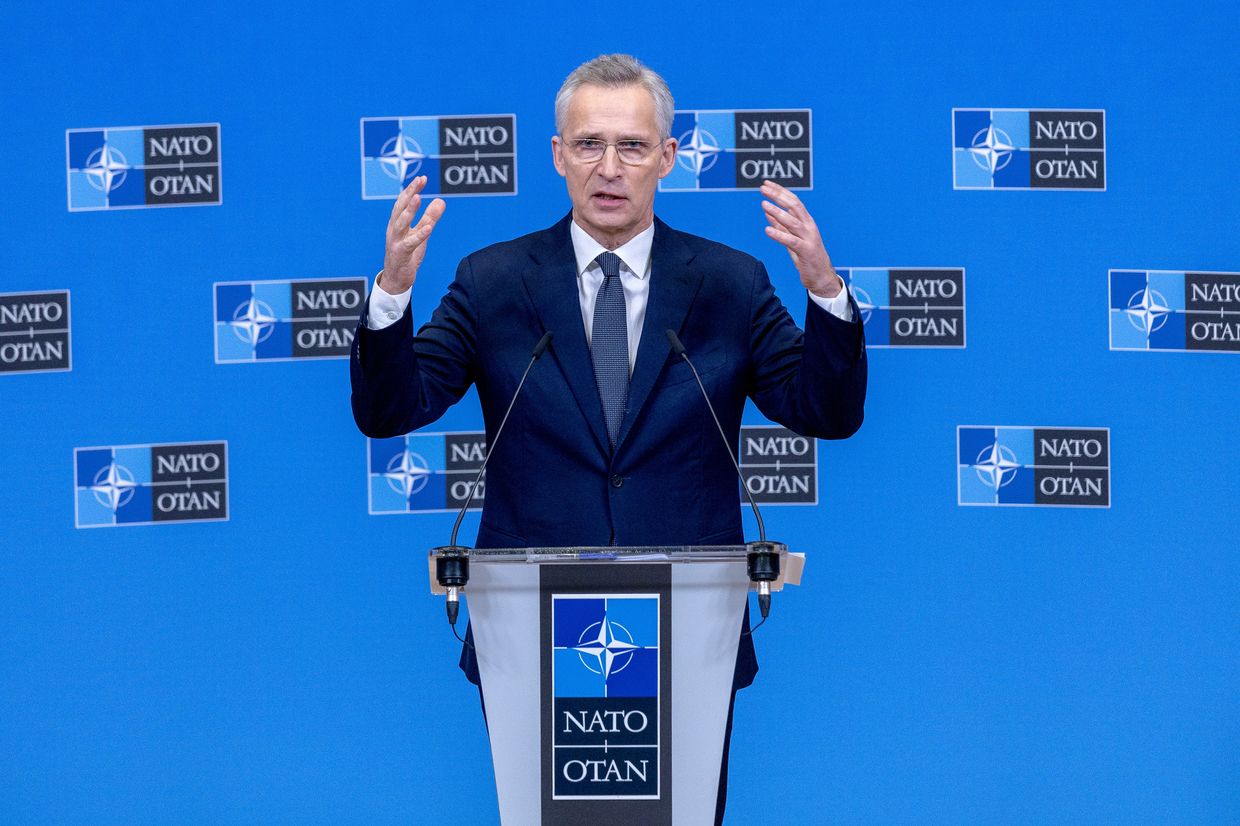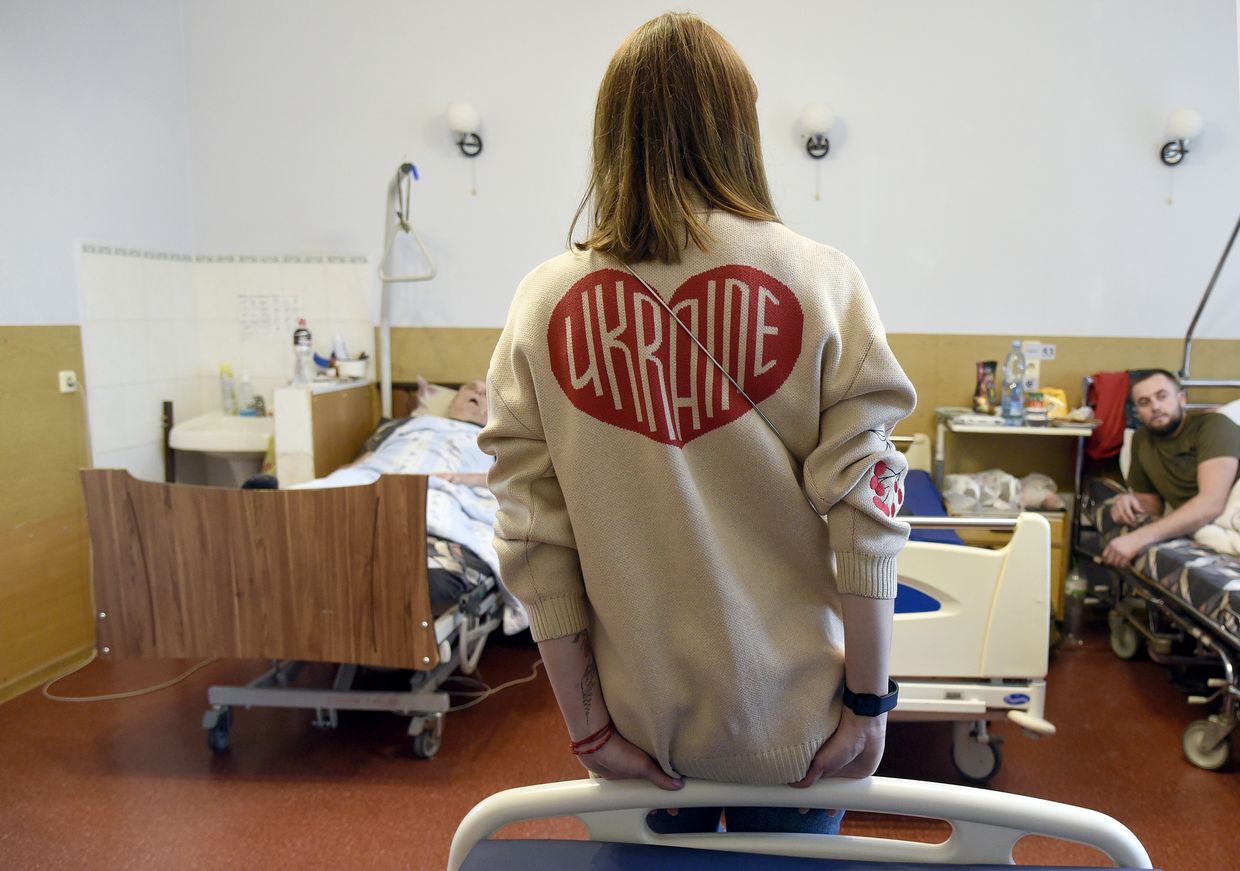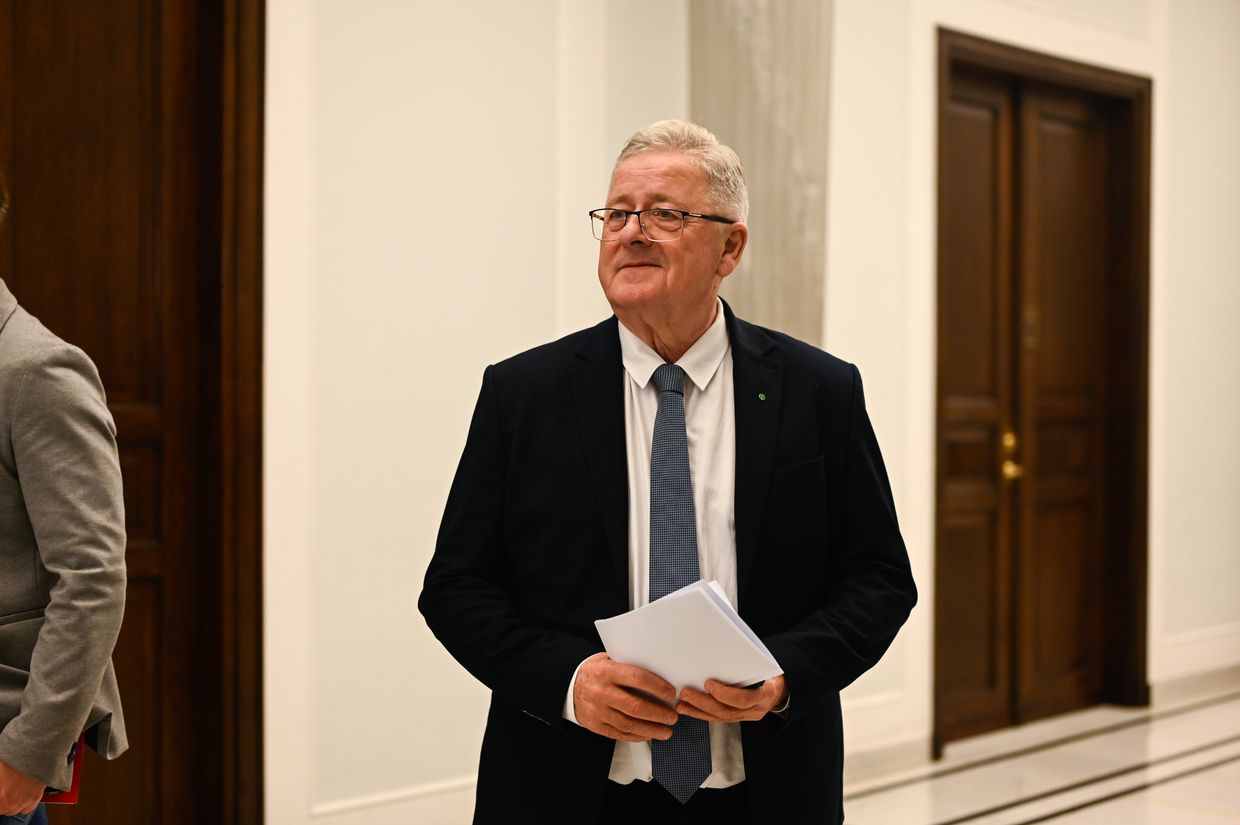Ukraine war latest: White House says Avdiivka may fall to Russia as Ukraine runs out of shells

Key developments on Feb. 15:
- White House: Avdiivka may fall to Russia as Ukraine runs out of shells
- Stoltenberg: Ukraine to receive 1 million drones from allies in 2024
- At least 11 injured, homes, infrastructure damaged in morning Russian missile attack on Ukraine
- Financial Times: Hungary blocking new EU sanctions package against Russia
- World Bank: Ukraine's recovery costs rise to $486 billion
Avdiivka is at risk of falling to Russian hands, in large part due to a lack of artillery shells on Ukraine's part, U.S. National Security Council spokesperson John Kirby said on Feb. 15.
Russian forces escalated attacks against the front-line town not far from occupied Donetsk in October 2023. Recent reports indicate that the situation is becoming increasingly dire as Moscow's troops encroach on the city.
Ukraine's Third Assault Brigade confirmed on Feb. 15 that it was "urgently" redeployed to Avdiivka in Donetsk Oblast, adding that the situation in the area is "extremely critical."
Ivan Siekach, a spokesman of the 110th Separate Mechanized Brigade, said on Feb. 13 that his brigade "no longer has sufficient capabilities to hold the city" on its own, but "reinforcement is coming."
"Avdiivka is at risk of falling into Russian control. In very large part, this is happening because Ukrainian forces on the ground are running out of artillery ammunition," Kirby said during a press briefing.
"Russia is sending wave after wave of conscript forces to attack Ukrainian positions, and because Congress is yet to pass the supplemental bill, we've not been able to provide Ukraine with the artillery shells that they desperately need to disrupt these Russian assaults."
Assistance from the U.S., a key military donor, has largely run dry as Congress failed to pass additional funding. The Senate recently approved a foreign aid bill including $60 billion for Ukraine, but the Republican-led House of Representatives presents a more difficult challenge.
House Speaker Mike Johnson voiced opposition to the bill, saying it needs to contain measures addressing security on the U.S.-Mexican border, even though he previously helped to kill a broader package that combined foreign aid and immigration reforms.
The White House has repeatedly urged Congress to pass the bill as the situation of Ukrainian troops becomes increasingly difficult without U.S. aid.
"We are getting reports of Ukrainian troops rationing, or even running out of ammunition on the front lines, as Russian forces continue to attack both on the ground and from trying to wear down Ukrainian air defenses," National Security Advisor Jake Sullivan said on Feb. 14.
Stoltenberg: Ukraine to receive 1 million drones from allies in 2024
Allies are planning to join forces to supply Ukraine with a million drones this year, NATO Secretary-General Jens Stoltenberg told reporters at a press conference in Brussels on Feb. 15 following a NATO-Ukraine Council meeting.
Ukrainian officials have repeatedly emphasized the importance of unmanned systems in the war in Russia. In addition to foreign supplies, President Volodymyr Zelensky said that Ukraine aims to also produce 1 million drones domestically in 2024.
"Today, we also met with Ukraine in the NATO-Ukraine Council. Defense Minister (Rustem) Umerov briefed allies on the latest developments on the ground, and we addressed the importance of our continued support," Stoltenberg said.
"A group of allies is coming together with the goal of delivering 1 million drones to Ukraine."
The secretary-general stressed that NATO allies account for 99% of all military aid to Ukraine.
"Our commitment is essential to preserving Ukraine's freedom," he said.
U.K. Defense Secretary Grant Shapps announced on Feb. 15 that London is joining Latvia in leading the "drone coalition" that coordinates supplies for Ukraine. Shapps also pledged thousands more drones to Kyiv, namely first-person view unmanned aerial vehicles.
"I'm proud to announce that the U.K. and Latvia will co-lead an international coalition to build Ukraine's vital drone capabilities," Shapps said.
"Together, we will give Ukraine the capabilities it needs to defend itself and win this war, to ensure that Putin fails in his illegal and barbaric ambitions."
President Volodymyr Zelensky signed a decree in February to create a new branch of Ukraine's Armed Forces specifically dedicated to drones.
The Unmanned Systems Forces will reportedly focus specifically on improving Ukraine's work with drones, creating special drone-specific units, ramping up training, systemizing their use, increasing production, and pushing innovation.
Zelensky said in January that one of the main goals for 2024 was outpacing Russia in the production of drones.
At least 11 injured, homes, infrastructure damaged in morning Russian missile attack on Ukraine
Russia launched another mass missile attack against multiple Ukrainian regions in the early hours of Feb. 15, injuring at least 11 people as well as damaging homes and civilian infrastructure, regional officials reported.
Russian forces launched 26 missiles of various types at Ukraine, 13 of which were shot down by air defenses, Ukraine's Air Force said following the attack.
Russia used Kh-101/Kh-555/Kh-55 air-launched cruise missiles, Iskander-M/KN-23 ballistic missiles, Kalibr sea-launched cruise missiles, Kh-59 guided air-launched missiles, and S-300 anti-aircraft guided missiles, according to the Air Force.
The attack hit Zaporizhzhia's industrial area, according to Ivan Fedorov, the regional governor, who said that six people were confirmed injured as of around 10 a.m. local time.
An infrastructure facility, several apartment buildings, an educational institution, and a store were damaged in the Zaporizhzhia strike, acting Mayor Anatolii Kurtiev said on Telegram.
In the western city of Lviv, Russian missiles hit an infrastructure facility while the blast wave damaged apartment buildings nearby, two schools, and a kindergarten, Lviv Mayor Andrii Sadovyi reported.
Three people were injured and received medical assistance, added Sadovyi.
Several hours later, the Energy Ministry reported that the attack had damaged an electrical substation and other energy facilities in Lviv, leading to an infrastructure facility being cut off from power.
Civilian facilities were hit in Ukraine's western Khmelnytskyi Oblast, acting Governor Serhii Tiurin reported, who later told Suspilne Khmelnytskyi that two people had been injured in the strike.
Russia targeted Kyiv and the surrounding region, where air defenses shot down all the missiles, according to local officials. No casualties were reported.
Remains of the downed missiles fell in two settlements in Kyiv Oblast, damaging several houses and outbuildings, said Governor Ruslan Kravchenko.
Civilian infrastructure was also damaged in Dnipropetrovsk Oblast, Serhii Lysak, the regional governor, said on Telegram.
Later, Lysak reported that two missiles were downed over the Nikopol and Novomoskovsk districts, but there were hits in the Dnipro district, where an infrastructure facility was damaged. No casualties were reported.
Russian forces struck a warehouse in the Myrhorod district in central Poltava Oblast, causing a fire, Governor Filip Pronin reported, adding there were no casualties.
Air defenses in western Ivano-Frankisvk Oblast downed Russian missiles during the morning attack, and its falling debris caused a fire, according to Svitlana Onyshchuk, the regional governor.
There was "significant damage" in the region but no casualties, Onyshchuk said.
Financial Times: Hungary blocking new EU sanctions package against Russia
Hungary has blocked the approval of the European Union's latest package of sanctions against Russia due to the presence of Chinese companies in the list, the Financial Times (FT) reported on Feb. 15, citing unnamed European officials.
The European Commission aims to have the 13th sanctions package in place to mark the second anniversary of the full-scale invasion on Feb. 24.
The package includes restrictions against almost 200 people and companies from Russia, China, and other countries helping Moscow's war effort, according to the FT.
EU ambassadors gathered on Feb. 14 to discuss the sanctions package, where Hungary became the only skeptic on the issue, sources told the FT. "The Hungarians did not agree due to Chinese companies," one of the officials said.
Hungary has consistently opposed sanctions on Russia and maintained close relations with Moscow since the full-scale invasion. Budapest has nonetheless eventually voted for the previous 12 sanctions packages, but only after extracting some concessions or exceptions.
Another official familiar with the EU discussion described it as "a very fruitful exchange," telling the FT that Budapest was "request(ing) a bit more time to analyze the content of the proposals."
The 12th sanctions package reportedly targets three Chinese companies and one in India, among other entities. If approved, it would be the first time that businesses in mainland China and India have been subjected to EU sanctions, according to the FT.
The officials said the EU would continue talks on the sanctions package, which will likely be considered at meetings of EU ministers next week.
Supporters of the package hope to have an agreement by Feb. 21 to meet the war’s anniversary deadline, the media outlet added.
World Bank: Ukraine's recovery costs rise to $486 billion
The estimated cost of Ukraine's post-war recovery and reconstruction has risen to $486 billion over a 10-year period, according to the World Bank's Third Rapid Damage and Needs Assessment published on Feb. 15.
This figure, based on data gathered between Feb. 24, 2022, and Dec. 31, 2023, is 2.8 times higher than Ukraine's nominal gross domestic product (GDP) for last year, read the report co-authored by the World Bank, the Ukrainian government, and the European Commission.
The economic and human cost of Russia's aggression continues to rise as the all-out war nears its two-year mark. The World Bank's earlier assessment from March 2023 put the recovery costs at $411 billion.
Ukraine also needs $9.5 billion to address immediate recovery and reconstruction priorities for 2024. Ukrainian authorities identified $15 billion for various needs this year, namely in industry, services, housing, utilities, energy, transport, and social infrastructure.
As of Dec. 31, 2023, direct damage caused by Russia's war has reached almost $152 billion, with housing, transport, commerce and industry, agriculture, and energy being the most affected sectors, the report said.
The damage continues to be concentrated in Donetsk, Kharkiv, Luhansk, Zaporizhzhia, Kherson, and Kyiv oblasts.
"Disruptions to economic flows and production, as well as additional costs associated with war (such as debris management), are collectively measured as economic loss amounting to over $499 billion," the assessment read.















